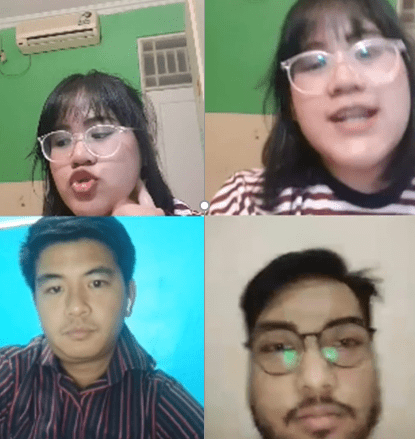
Yogyakarta, 26 Agustus 2020—Center for Digital Society Fisipol UGM is back with OPOSIT on Wednesday night. In this session, the seventh OPOSIT brought the topic of Indonesia Digital 2020.There are two main discussion materials related to that topic; Indonesia’s quality of digital literacy until now and the development of internet platforms that we use. The event went on from 7 to 8 pm on @cfds_ugm Instagram live.
The host gave the audience a chance to say their opinion regarding the topic by asking for permission to the host to join the @cfds_ugm instagram live. The first person that got the chance to talk was Fahri. Fahri said that he has known the internet since 2020, but at that time, he only used Facebook, Friendster, and Twitter. Seeing the growth of the platform and the diversifying user of the internet, Fahri sees that now internet users (netizen) are more critical. They are bolder in expressing themselves, stating their opinion, and they are wilder when giving comments. A couple of years ago, social media was more private. But now, everyone can see our opinion even if they do not follow our account.
The diversifying social media platform also made netizen’s attitudes change. They seem to always crave other people’s attention and validation so that they often do things that are outside of the normal norm. Because they feel free online, they rarely say an opinion just to get viral without realizing that it hurts someone else. Therefore, digital literacy is crucial so that we are wiser in using social media, especially in terms of processing information that we get on the internet. “As an indonesian and as a netizen, we are free to express ourselves. However, we need to still follow the norms and the rules. Don’t strive for fame when in actuality it might disadvantage other people.”
The second participant was Made Bayu. Similar to Fahri, Made admitted that he started using the internet in 2020, when he was in the sixth grade. According to Made, a problem that needs to be underlined is the disparity of access to digital technology in Indonesia. From Sabang to Merauke, there are still regions that have difficulty accessing the internet and some that don’t even have access at all. Made sees that this is not because the society is reluctant to using the internet but rather because the development of the internet itself is slow, one of them because of the existence of economic gaps. However, in a situation like this pandemic, citizens can once again learn how to be more digitally aware because most of the activities are done online.
By the end of the discussion, the host announced that the discussion will be continued in Diffusion #32 which will also be discussing about DIgital Indonesia 2020 on Friday, 28 August 2020. The recap of Oposit can be seen in @cfds_ugm Instagram TV page.
